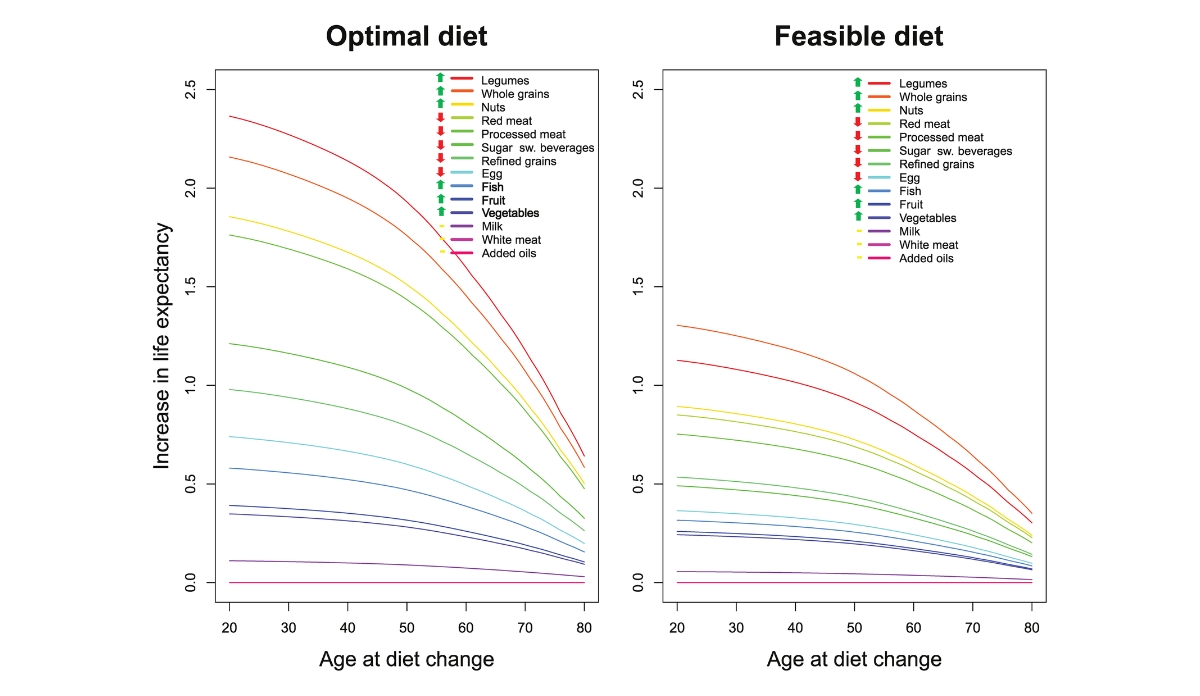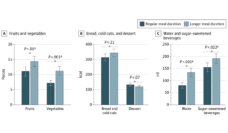As you stroll through the aisles of your favorite grocery store, have you ever considered that the items in your shopping cart could add years on to your life?
Dr. Lars Fadnes and his team in Norway developed a decision aid tool to help predict how dietary choices can impact life expectancy. Using data from the Global Burden of Disease cause of death database and nutritional data from meta-analyses, the team modeled three common diets. The first was a typical western diet, high in fat and processed foods; the second was an “optimal” diet with lots of whole-grains, fish, fresh fruits and vegetables, and very little red meat or refined sugars; and the third “feasible” diet combined elements of the “optimal diet” and western diet.
Unsurprisingly, a switch from the nutritionally poor western diet to the “optimal diet” increased estimated life expectancy by thirteen years when done at a young age. As shown in the graph above, dietary changes’ influence on life expectancy declined over time. Dietary changes starting at age 20 would give a 48% higher gain in life expectancy than changes starting at 60, and nearly three times the gains than changes starting at 80 years. It’s better to make healthy dietary choices sooner than later.
But before making drastic changes to accommodate an “optimal diet,” consider all your dietary options. Eating food from the “feasible diet,” with little meat and lots of legumes (i.e., peas, lentils, peanuts), whole grains, and nuts was the more effective and economical way to increase life expectancy.
While fish, fruits, and vegetables of the “optimal diet” were certainly helpful in prolonging life expectancy, their inclusion came with a price tag that is too high for the average eater.
Given the high cost of food and the challenges that so many face trying to pay for groceries, paying less money for food and gaining more years of life is a satiating payoff.
You can try the study’s Food4HealthyLife calculator decision aid here.
Databyte via Lars T. Fadness, Jan-Magnus Okland, Oystein A. Haaland, and Kjell Arne Johansson. Estimating impact of food choices on life expectancy: A modeling study. PLOS Medicine, 2022.














